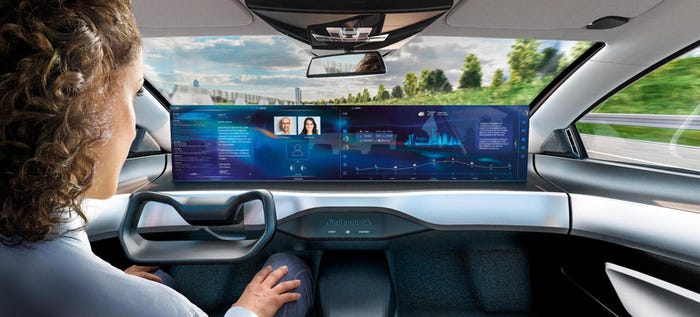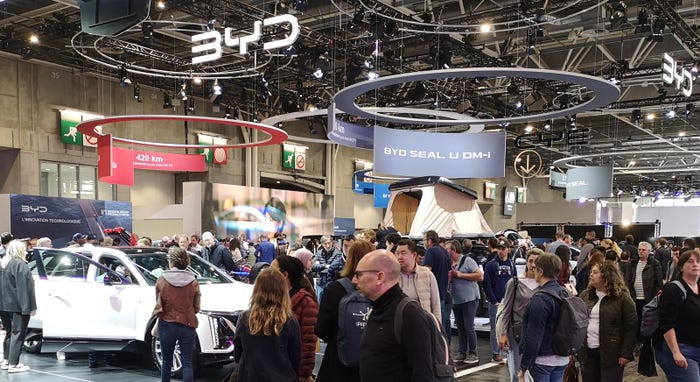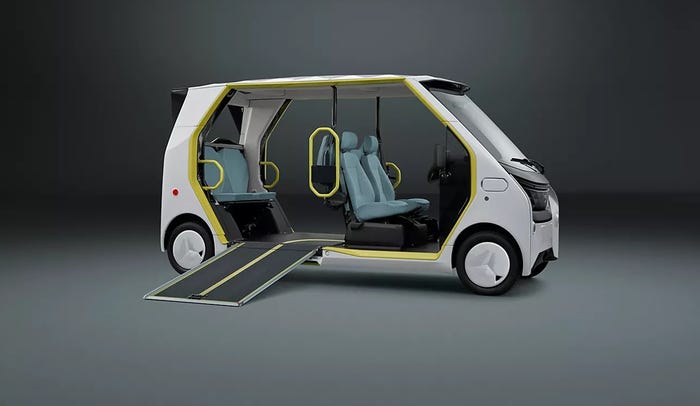How Car Dealers Can Keep, Win Back Service Customers
U.S. dealers earned $111.2 billion in service and parts sales in 2020, a third of the vehicle maintenance and repair industry’s total revenue, according to the National Automobile Dealers Assn. Local repair shops and car-care chains get the rest.

Motorists who get their vehicles serviced at car dealerships say they do so largely because of the skill and know-how of the auto technicians at those businesses.
That’s according to a CDK Global survey focused on how car dealers can attract more service customers.
The consumer group that patronizes dealerships cite the “superior knowledge” of the mechanics, Kim Saylor, CDK’s product marketing manager, tells WardsAuto.
The rationale is that a dealership representing a particular auto brand employs auto technicians who are better trained and work on that brand’s vehicles daily.
Yet, dealership-loyal service customers represent a minority. About 70% of people who buy a vehicle at a dealership end up taking it to a third-party mechanic for post-warranty repair and maintenance.
That’s a big gap between dealership goals and customer behavior. Citing the survey results, Saylor offers recommendations on how dealers can narrow it.
Much money is at stake. U.S. dealers earned $111.2 billion in service and parts sales in 2020, a third of the vehicle maintenance and repair industry’s total revenue, according to the National Automobile Dealers Assn. Local repair shops and car-care chains get the rest.
Dealers rely on their service departments for 30% of net profits, according to NADA data.
Offering convenience, fair pricing and online appointment scheduling are key to helping car dealers win back and keep service customers, according to the CDK survey of 400 service shoppers.
Customers leading busy lives choose their vehicle service based on how easily it fits into their schedules. CDK research indicates that when it comes to convenience, dealers rank below both independent shops and service chains.
Local repair shops have a geographic leg up because “they are all over the place,” notes Saylor (pictured below, left). Dealerships aren’t.

Kim Saylor
Still, dealerships can provide other forms of convenience, such as giving customers the ability to digitally schedule appointments, track service progress and pay remotely, she says.During the height of the COVID pandemic, many dealerships began offering home pick-up and delivery of serviced vehicles. Saylor calls that “a huge convenience factor.” Sixty percent of surveyed people said they would love that service.
Offering light repair maintenance at a customer’s home, workplace or elsewhere also would win over many consumers: CDK says 55% of those surveyed would “love” the availability of that remote service work.
Dealership service prices generally run higher than independent shops. But dealers can take some of the bite out of that by emphasizing their expertise – including on social media sites – and offering consistency, Saylor says. Dealers needn’t offer the lowest price but “they should offer consistent pricing,” Saylor says. They should “educate customers on the value of their work.”
Currently, nearly 60% of service shoppers say they feel dealerships would overcharge them, the survey says.
It’s tough to pin down exactly what makes a price feel fair, because perceptions vary from customer to customer, according to CDK research. Even for a single customer, the feeling can shift, depending on whether the repair work is major or minor.
When it is major, customers take into account the dealership’s level of expertise, quality of work and the expected use of OEM-certified parts. Consequently, they are more flexible on price, CDK says.
But with minor repairs, customers show less flexibility on how much they are willing to pay.
Getting only a third of the lucrative vehicle repair business seems almost depressing for dealers.
But Saylor says the good news for them – and what surprised her most about the CDK survey results – is that 74% of non-dealership service customers would switch to a dealership that fostered trust through convenience and fair pricing.
That suggests a potential for changed customer behavior, she says.
Steve Finlay is a retired WardsAuto senior editor. He can be reached at [email protected].
About the Author
You May Also Like



.jpg?width=700&auto=webp&quality=80&disable=upscale)

